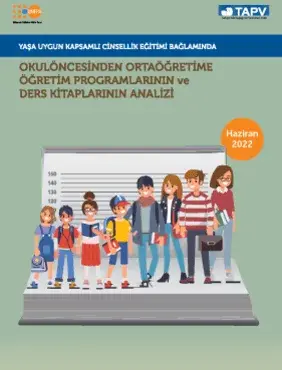'International Technical Guidance on Sexuality Education', first published by the United Nations Educational Scientific and Cultural Organization (UNESCO) in 2009 and revised in 2018; A structured learning process with a positive perspective on sexuality and relationships is recommended, taking into account the benefit of young people. In order to achieve this, the learning objectives of age-appropriate comprehensive sexuality education in the Technical Guide are; are given by classifying them under eight basic concepts that are equally important, reinforce each other and are intended to be taught together. These basic concepts are (1) Relationships, (2) Values, rights, culture and sexuality, (3) Understanding gender, (4) Violence and protection from violence, (5) Health and well-being skills, (6) The human body and development, (7) Sexuality and sexual behavior, (8) Sexual health and reproductive health.
With the Technical Guide, the basic components of effective sexuality education programs are outlined, and an opportunity is provided for regulations to be made at the national level to design a comprehensive education program that will support the well-being and health of young people. In this context, it is important to determine the extent to which the national education programs comply with this framework program and to determine the missing areas in terms of developing and updating the programs. With this research, it is aimed to determine the education areas needed in age-appropriate comprehensive sexuality education by analyzing the official curriculum and textbooks applied in formal education institutions from preschool to 12th grade according to the "International Technical Guide on Sexuality Education" prepared by UNESCO (2018). In order to achieve the determined purpose, the documents were analyzed to determine the current situation in the curriculum of the Ministry of National Education (MEB) and how the MEB achievements related to the learning objectives in the Technical Guide were handled in the MEB textbooks.
This study, which stands out as the first comprehensive study in the field of comprehensive sexuality education that examines longitudinally from pre-school to secondary education, is expected to be a source for future research and to guide future studies thanks to the due diligence presented with the general point of view it presents. In this context, the study, which is thought to be a resource for institutions to draw a roadmap, is expected to be a resource for teachers, health educators, development experts, sexuality and reproductive rights advocates, youth leaders and interested researchers.


